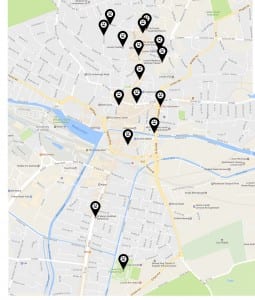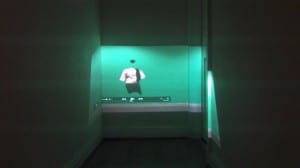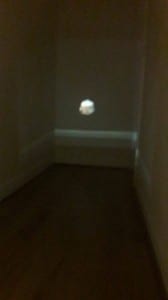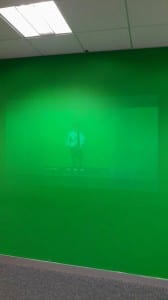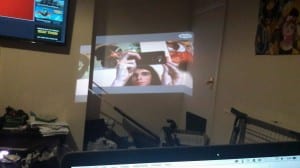Although the main event of Digital Seance will be the conversation between myself and the Ghost, other elements will be present in the exhibition. One of the elements that will feature is the telling of ghost stories from the local area, told by the people how encountered and interacted with these spirits.
To find these stories, I looked through multiple websites documenting different encounters people have had with the supernatural. One key website for this was http://www.paranormaldatabase.com/hotspots/lincoln.php as it not only detailed stories, but there location as well. Another key source was the Lincoln Ghost Walk, as the stories used in this tour are from the local area.
From these accounts, I selected 4 different stories to feature in this section. By taking the key events recorded, I expanded them and put them into a script to be performed by an actor. The scripts were written as if they were a first hand account of the sightings, instead of someone telling the story they had heard from someone else. This adds more context to the story, connecting it to the person who encountered the spirits, instead of a random person retelling the stories. One of these scripts is as follows:
‘On this very night many years ago, during the rain of her majesty, Queen Victoria, me and a friend of mine had a plan to rob Edward King’s house when the Bishop was out one night. So, we managed to lure the Bishop away from the house for the night. Perfect time to break in and take what we need to make some money. Great plan, what could go wrong? Well, we waited nearby for the Bishop to leave, so we knew we could get in there. But as he was leaving, this huge figure was walking just behind him, and I’m talking huge. He was not the kind of guy you would want to cross, and if we got caught, that’d be the end. So we did not commit the crime. Years later, I went to confess my many sins to the Bishop, including the plan to rob the house. When I told him the tale, the Bishop looked confused. He told me he remembered that night, and he remembered that he was travelling alone.’
The original recording of this audio can be found here: https://soundcloud.com/user-326345295/rob-ghost-speech-og
However, only having the stories read out did not add to the haunted atmosphere I wanted to create for the event. To make the speeches sound more ghostly, I added some reversed reverb to the originals. This technique involves reverse the original speech and adding a large amount of reverb. Only this reverb is recorded, then un-reversed to go back to the original. Once this is added back to the original, its creates an effect that makes the actor sound as if they are talking as a ghost. Although the characters in the stories aren’t ghost, but those who have encountered them, this effects helps create the haunted atmosphere for the event. The first of these speeches can be heard here: https://soundcloud.com/user-326345295/rob-ghost-speech-1
Once completed, these speeches were cut together, with a haunting piano rift placed in between them. This audio would loop throughout the event, to help create the atmosphere for the exhibition, as it works with the mies-en-scene to create the environment. This completed audio can be heard here: https://www.youtube.com/watch?v=LwflAkgZfSQ&list=PLMSfG-YCfI69UpyUhHcA5HkDTYpIT13qC&index=15
